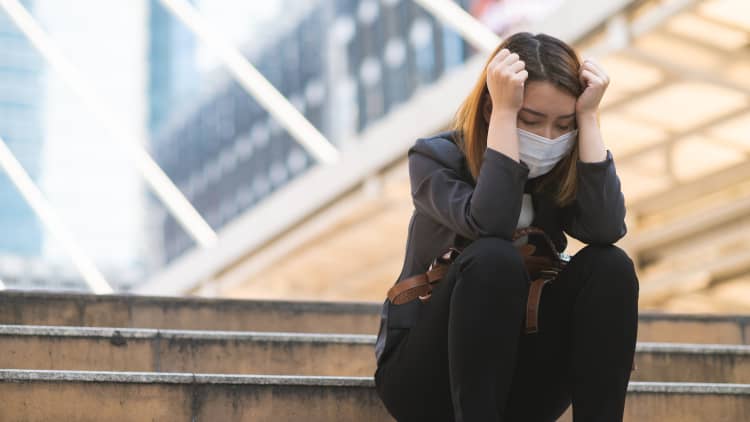Around the world, people are coping with heightened levels of stress due to the coronavirus pandemic, which has killed at least least 1.05 million people globally. For Americans, the contentious 2020 presidential election is only compounding the unprecedented levels of anxiety and uncertainty.
A recent survey from the American Psychological Association and Harris Poll found that 68% of American adults say that the upcoming U.S. presidential election is a significant source of stress in their life. To put that in context, ahead of the 2016 election, only 52% of Americans said the election was a "somewhat significant source of stress."
The new survey included a total of 3,409 adults ages 18 and up in late August. Interestingly, stress was fairly consistent across political party affiliations: 76% of Democrats, 67% of Republicans and 64% of Independents reported feeling election-related stress.
If you are also feeling overwhelmed in the run up to the election, here are some research-backed strategies that the APA says can help you cope with election stress:
Avoid dwelling on worst case scenarios
Humans have evolved to avoid uncertain situations, because the fear of the unknown tends to elicit negative emotions. So "avoid dwelling on things you can't control," advises the APA.
"When uncertainty strikes, many people immediately imagine worst-case scenarios." But research has shown that ruminating, or thinking involving excessive, repetitive thoughts or themes, can impair thinking and problem-solving.
Meditation and distraction are a couple of actionable ways you can stop the rumination cycle.
Have a voting plan
Just "making a plan on how you will vote" can help your anxiety, according to the APA, because doing things that give you meaning can make you happier.
You can also engage in other purposeful activities, like volunteering your time to a political party. Research suggests that volunteering can combat stress and even help you live longer.
Have an Election Day plan, too
The uncertainty about the election may not end on Election Day, because election results could take weeks to process due to the shift in mail-in voting. To that end, figure out something to do on Election Day (in addition to voting) that will keep you busy and "connected to social support," the APA suggests.
For example, make plans to catch up virtually or safely with a friend or family member. "Research shows that people who have at least one or two friends or family members to turn to for emotional support during stressful times tend to cope better than people who don't have such support," according to the APA.
Or sign up for a virtual course with a friend so you'll be less focused on watching the news, suggests the APA.
Control your media consumption
The APA suggests taking a break from the news or social media if you find it's causing you stress. For example, many people have been "doomscrolling," the colloquial term for endlessly scrolling social media reading bad news.
So limit the time you spend with election news. (Studies have shown that just watching news coverage of a traumatic event can trigger acute stress symptoms.)
Don't miss: The 6 best credit cards for shopping at Costco



